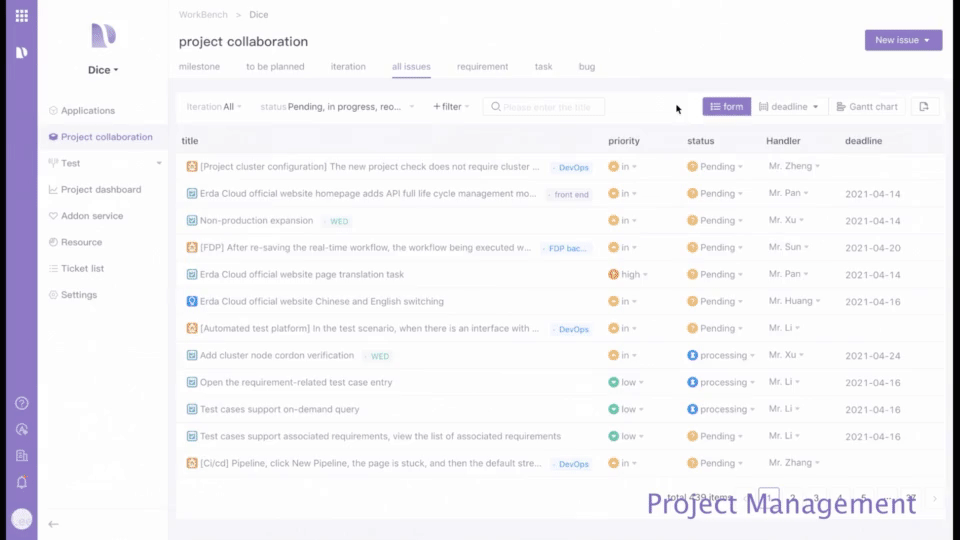Erda is an open-source platform created by Terminus to ensure the development of microservice applications. It provides DevOps, microservice governance, and multi-cloud management capabilities. The multi-cloud architecture based on Kubernetes and application-centric DevOps and microservice governance can make the development, operation, monitoring, and problem diagnosis of complex business applications simpler and more efficient.
Functional Architecture
Erda is mainly composed of the following parts:
- DevOps
- Microservice Governance, including Application Performance Management, Monitoring, Log Analysis, API Gateway, etc.
- Multi-Cloud Management
- Edge Computing
- FastData Management
We split the codes of erda into multiple repositories according to different functions. The key repositories are erda, erda-proto, erda-infra, erda-ui.
erda It is the main repository.
[erda-proto]: (https://github.com/erda-project/erda-proto) It stores the communication protocol definitions between erda internal services, and the componentized protocol definitions between the web front-end and back-end services.
[erda-infra]: (https://github.com/erda-project/erda-infra) It is a basic repository, which stores some common and basic module codes, including the wrappers of middleware SDK, etc.
[erda-ui]: (https://github.com/erda-project/erda-ui) It is erda's web system and an essential component of erda. Due to the separation of front-end and back-end, it is an independent repository.
Please follow How to install Erda.
To start using Erda, please see the documentation.
- 中文
- English
Contributions are always welcomed. Please refer to Contributing to Erda for details.
If you have any questions, please feel free to contact us.
-
Email: erda@terminus.io
-
Zhihu:Erda技术团队 (A Chinese knowledge community, similar to Quora.)
-
WeChat Official Account:
-
DingTalk Group:
Erda is under the AGPL 3.0 license. See the LICENSE file for details.






